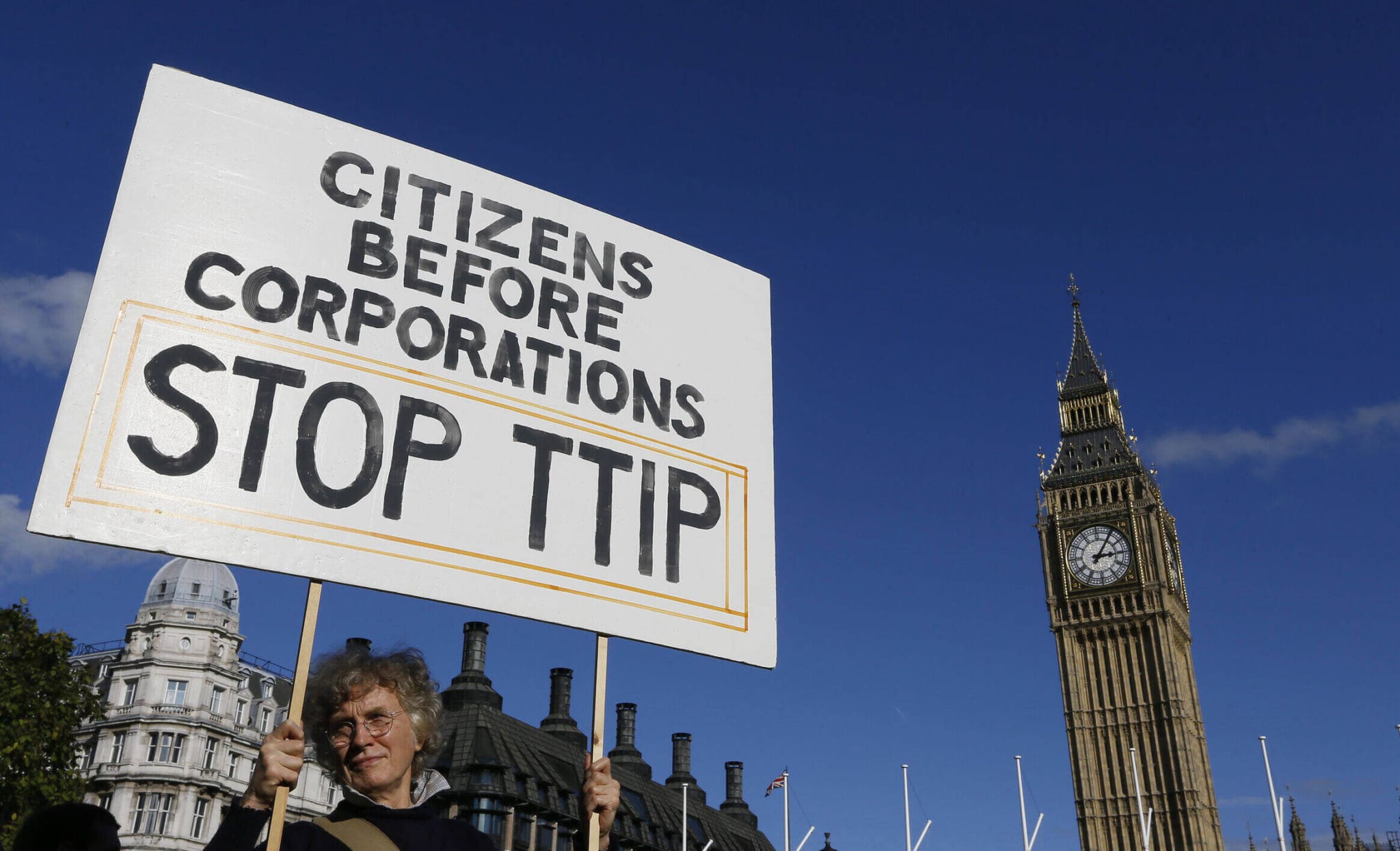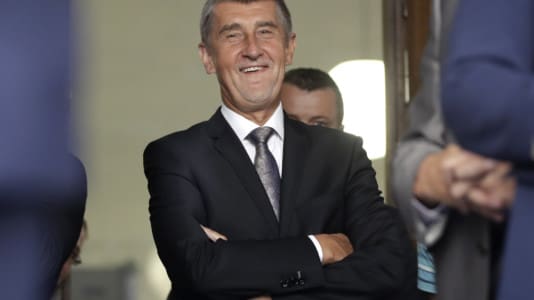The renewed Transatlantic Trade and Investment Partnership (TTIP) negotiations between the European Union and the United States could spur a great storm of resentment. This free trade agreement was the subject of mass demonstrations, mainly in Germany. Now, Germany wants to discuss the partnership at Thursday’s summit in Brussels with the U.S. President Joe Biden.
Analyst Petr Bartoň told Echo24 that if the agreement is to succeed, it will have to feature much better communication and most likely stay focused on the energy issue. Otherwise, it may again be the subject of anti-capitalist demonstrations.
The Transatlantic Trade and Investment Partnership was intended to be an agreement that would facilitate free trade between the United States and the European Union. According to the Handelsblatt daily, Germany’s Finance Minister Christian Lindner would now like to discuss the agreement at Thursday’s European Union summit in Brussels as he seeks to reduce Germany’s dependence on the Chinese economy. The agreement could also benefit from the Russian invasion of Ukraine, which has brought the European Union and the United States closer together.
“We should resume negotiations. Especially now with the (Ukraine) crisis, it is becoming clear how important free trade is with partners in the world who share our values,” Lindner told the daily, noting that the involved parties learned from the experience of past negotiations.
The lack of transparency was the main downfall in the past
The free trade agreement faced enormous criticism, and the left in particular pointed out that the agreement between the nations was kept secret, and it was not clear what they had even agreed on. Farmers, in particular, protested loudly because the agreement also included the unification of food safety standards, which would have led to lower standards U.S. food coming into the market, which features pesticides and livestock practices banned in the EU. The agreement, for example, generated warnings that “chlorinated chickens,” which is poultry meat cleaned with chemicals forbidden in Europe, would soon find its way on to European grocery shelves.
It was the lack of transparency in the negotiations that brought people to the streets. Some of the largest mass protests took place in German cities. For example, in September 2016, 150,000 people took to the streets in seven German cities. In addition to the TTIP agreement, they also protested against the agreement with Canada, the so-called CETA.
However, the original aim of the agreement was not to introduce “chlorinated chickens” but to reduce individual tariffs, unify regulatory standards and thus ensure higher profits and prosperity. According to Lindner, the new agreement should be based on the same principles. Today, it has more potential than before the war or during the presidency of Donald Trump.
Will the United States help Europe lessen dependence on Russia?
According to the chief economist of Natland investment company Petr Bartoň, it was a huge mistake that the marketing of the TTIP was not handled better in the past.
“The negotiations were top secret, even top government officials were only allowed to see the sub-agreements for a while and without a cell phone. And so the anti-capitalist forces managed to persuade the crowd that it (the agreement) meant selling the state to large corporations at the expense of consumer, Earth, and animal protection,” explained Bartoň
According to him, the agreement should also focus on getting a different name.
“It is still true, however, that tariffs will not necessarily be the main issue in the coming years in the Euro-American trade. These are generally low, thanks to the World Trade Organization, although increased tariffs remain on some goods, for example, due to disputes about direct state subsidies to Boeing and Airbus on both sides of the Atlantic,” he noted.
According to Bartoň, there are two important issues. First, the development of trade is currently being hindered not by customs tariffs as much as by the regulation through artificial standards. The second question is whether the United States will be willing to help Europe to get rid of dependence on Russia’s energy. The thing is that, at the moment, the United States does not need the European Union so much, and helping the energy sector would mean huge investments in mining and transportation capacity.
“A formal agreement in this direction would take several months, so it would not be that important in terms of the current war. So, we can rather expect some semi-formal proclamation of transatlantic cooperation at the energy level, rather than both sides wanting to reopen the issue of chlorine-disinfected chicken meat,” concluded Bartoň.






